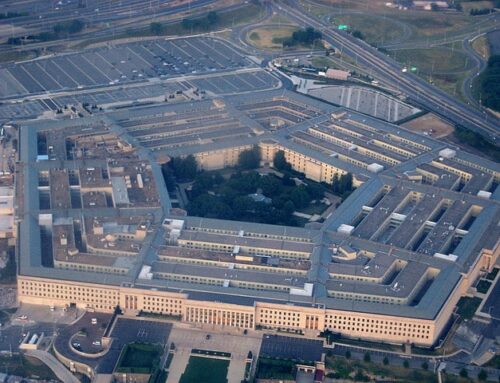Bad ideas are known for putting down roots. One such bad idea took root way back in 1961 when Congress began forcing the U.S. military to ship anthracite coal mined in Pennsylvania thousands of miles to be burned at military installations in Germany. This program began with a handshake agreement between some members of Congress and a few Pentagon officials. Nothing was written into law back then, just a “gentlemen's” agreement. Then, starting with legislation funding the Pentagon for fiscal year 1973, the requirement was written into law. The provision was pushed by Rep. Daniel Flood, a Pennsylvania Democrat and member of the House Appropriations Committee later convicted in an unrelated payoff scheme.
And the requirement remained – just a few words written over and over into annual appropriations bills.
The military tried to change things. When the U.S. Army and Air Force sought to modernize the heating plants at these installations to burn something other than coal, the powerful Pennsylvania delegation blocked the proposed modernization. And after Flood left the House in disgrace, other Pennsylvania lawmakers stepped right up to maintain the requirement. The House Appropriations Committee obliged and for 42 years, right up until fiscal year 2016, bill language was inserted requiring the Pentagon to buy coal in Pennsylvania and ship it across the Atlantic.
Remember that stripping out that requirement doesn't mean the Pentagon can't buy Pennsylvania coal and ship it to Germany. It just means it doen't have to. If the Air Force believes this is the most cost-effective way to heat its facilities in Kaiserslautern, it could continue to do so.
The 2015 defeat should have ended the matter. Unfortunately, the lobbyist who has made his living pushing this requirement was back at it again and the House Appropriations Committee version of the spending bill for fiscal year 2017 included a slightly revised requirement. While previous language prohibited the modernization of the heating plants at U.S. military installations in the Kaiserslautern Military Community in Germany to be fired by any fuel other than coal, the new language appeared to allow the Secretary of the Air Force to modernize the heating plants, but went on to state, “Provided, That in the City of Kaiserslautern and at the Rhine Ordnance Barracks area, such agreements shall include the use of energy sourced domestically within the United States as the base load energy for municipal district heat to the United States Defense installations.”
That provision was a thinly disguised attempt to accomplish the same thing the Congress rejected last year. The energy source still must come from the U.S. and be shipped across the Atlantic Ocean.
Once again, Huffman and McClintock teamed up to offer an amendment stripping the provision from the bill. This year, some members of the Pennsylvania delegationattempted to sway minds by arguing that the Air Force would be forced to purchase coal from Russia if the provision was stricken. But as McClintock pointed out, “One company in Poland produces 48 million tons of coal from 23 mines. It produces more coal in an hour than this base uses in a year.”
In his remarks, Huffman summarized the issue succinctly: “So let's reiterate our bipartisan opposition to this wasteful, zombie earmark.”
The final result of all this scare-mongering by the Pennsylvania delegation surely disappointed them. Not only did the amendment ending this wasteful program pass again, but 16 more members joined in voting to strip the provision this time around, 268-153.
My organization will keep a watchful eye on this bad idea for the rest of this year, and in succeeding fiscal years. Because, like zombies, some bad ideas simply never die.











Get Social